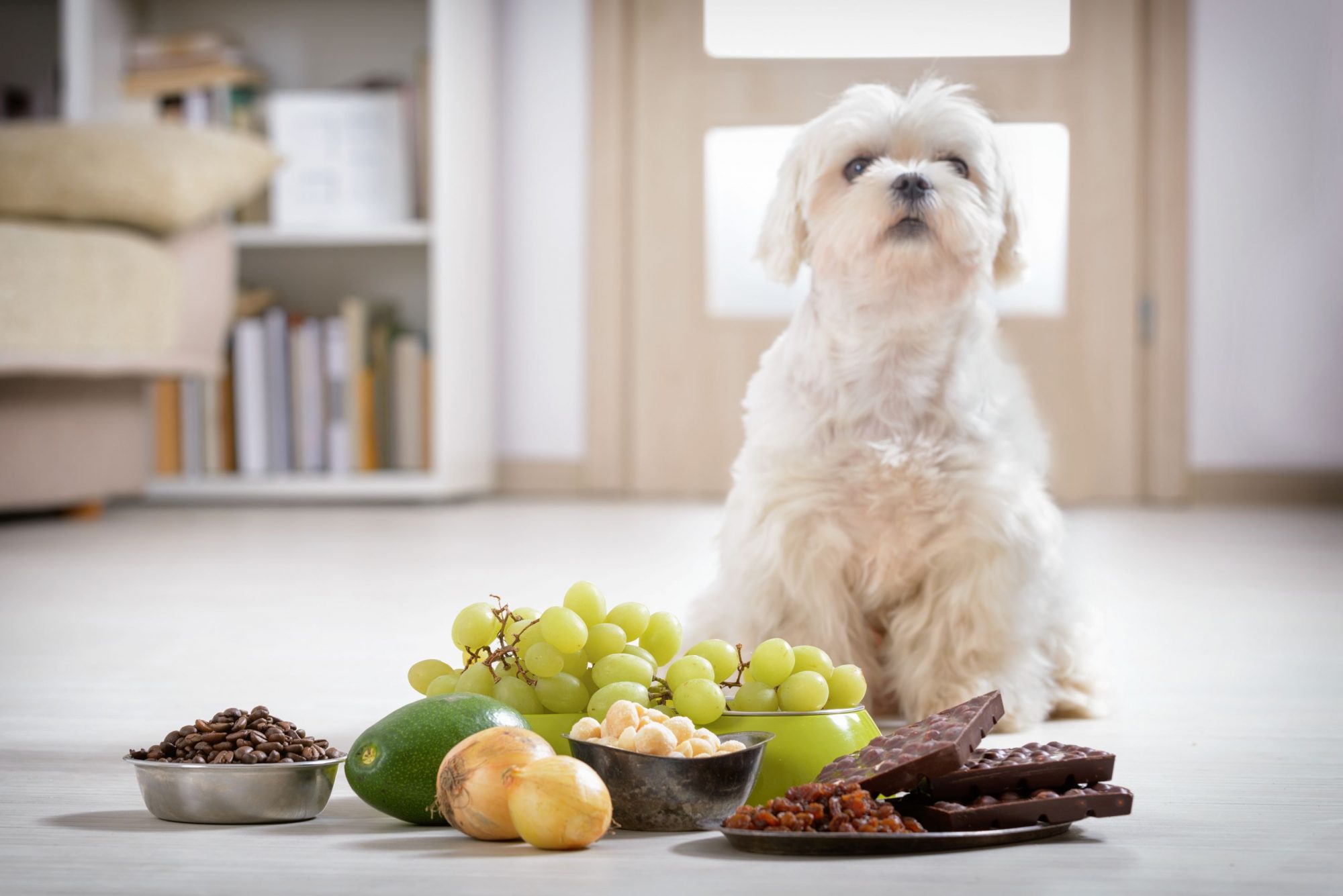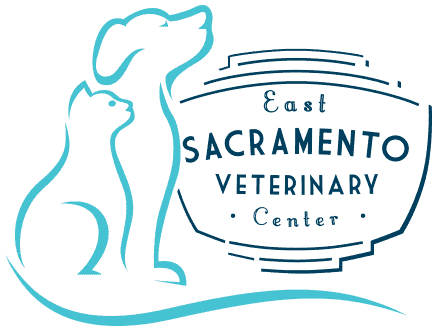Toxic Foods for Dogs: What You Need to Know!

Sharing a little bit of your dinner with man’s best friend is a part of many of our relationships with our dogs. While we want you to enjoy your pet, East Sacramento Veterinary Center thinks it is important to remind our clients that there are reasons that people food is really for people. Besides things like digestive upset, pancreatitis, and weight gain, human foods can sometimes be dangerous. Read on to learn what you need to know about toxic foods for dogs.
Toxic Food for Dogs
When it comes to sharing your food with your dog, there are definitely some items to steer clear of. While many things might be okay in moderation, the following toxic foods for dogs are on the definite no-no list:
- Chocolate—Perhaps the most well-known dog danger, chocolate ingestion can have serious consequences. Theobromine in chocolate can cause vomiting, diarrhea, increased heart rate, and even seizures. There is a higher concentration of theobromine in dark chocolate, and even higher in baking chocolate. Effects are dose-dependant, meaning the level of toxicity is directly related to the size of the pet and how much theobromine was ingested
- Uncooked dough—When uncooked dough is ingested, higher temperatures in the body can cause its expansion in the stomach. The fermentation process also leads to alcohol production that can lead to toxicity.
- Anything with xylitol—The artificial sweetener xylitol is often found in things like low-sugar baked goods, sugar-free candies and gums, low-sugar peanut butter, and non-food items like toothpaste and deodorant. Its ingestion can lead to a life-threatening drop in blood sugar and, in some cases, liver failure.
- Onions and garlic—Onions and garlic, in large enough quantities, are also toxic to dogs. Their ingestion can cause the red blood cells in the body to rupture in a condition known as hemolytic anemia.
- Edibles—Edibles containing marijuana and its derivatives often contain THC in concentrated amounts. Ingestion by your dog can lead to things like lethargy, low heart rate, drooling, leaking urine, and seizures.
- Grapes and raisins—Grape or raisin ingestion can lead to kidney failure in dogs even in fairly small amounts. We are just beginning to understand tartaric acid’s role in this toxicity and hopefully will have a better grasp on why certain dogs seem to be more susceptible than others in the near future.
What to Do if Your Pet Eats Something Dangerous
If you think that your pet may have ingested something toxic, it is important to act fast. Call us right away for instructions on what to do. We can help determine if the potential toxic dose was high enough to warrant treatment.
If you suspect a pet poisoning, depending on the circumstances, we may induce vomiting. Many times activated charcoal administration is also indicated to prevent further absorption into the bloodstream.
Specific toxins will be treated depending on their properties and how the pet is doing. Often things like intravenous fluids, heart monitoring, blood work monitoring, and specific drug administration are indicated.
Time can be crucial when it comes to ingestion of toxic foods for dogs. The more time that elapses between the exposure and treatment, the harder the odds are stacked against us. Please be cautious when feeding your pet human food and remember that most times it is just not worth it.
